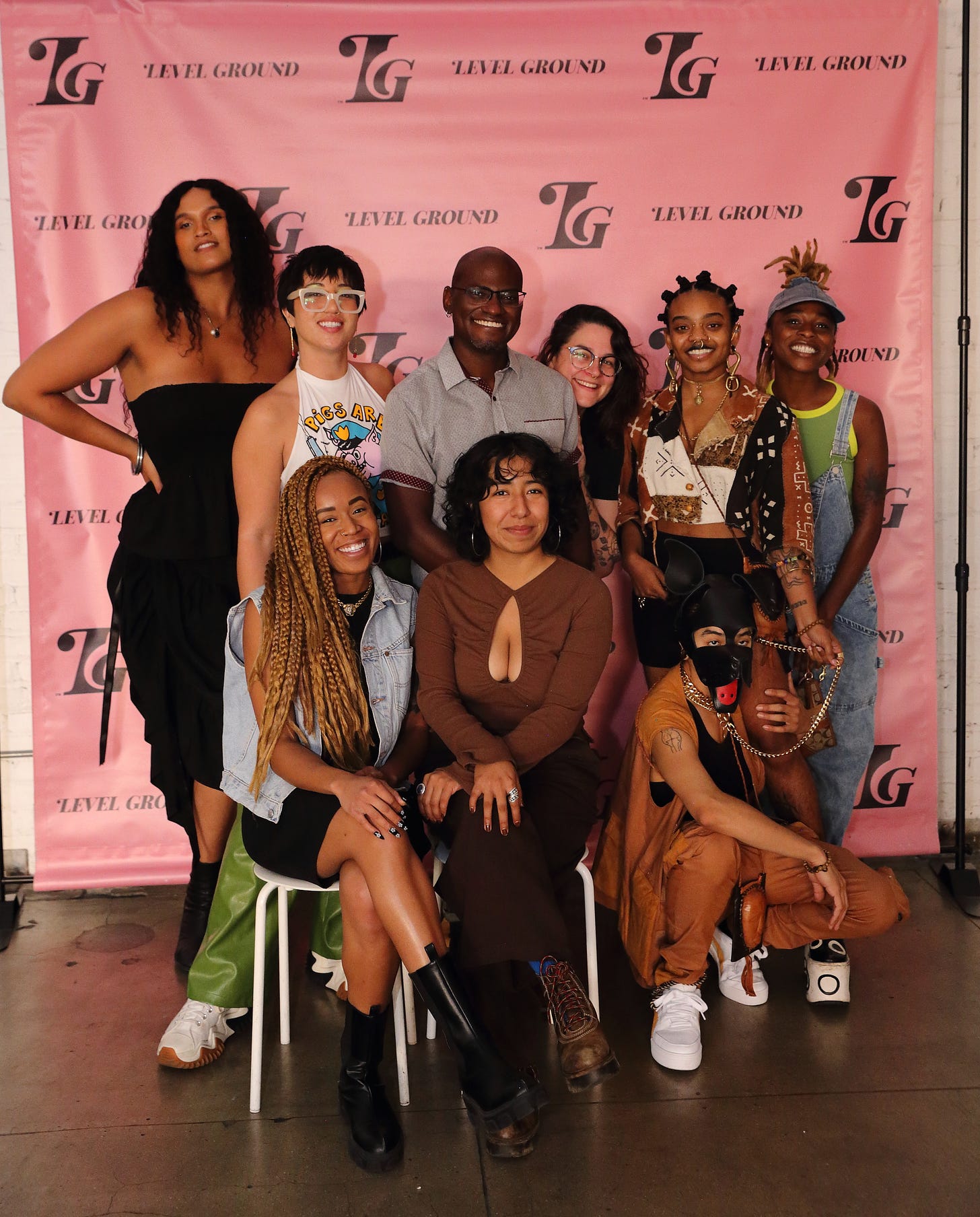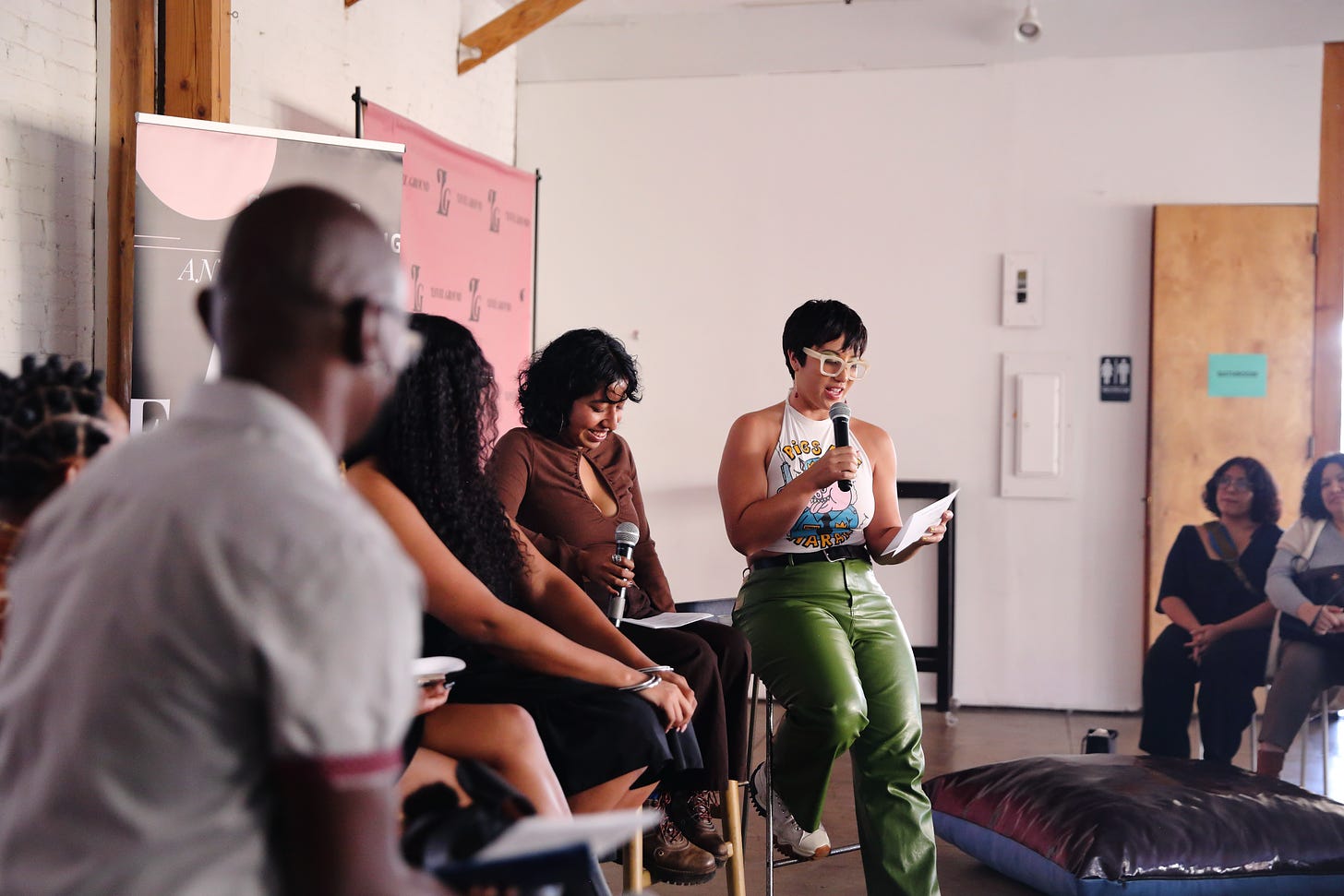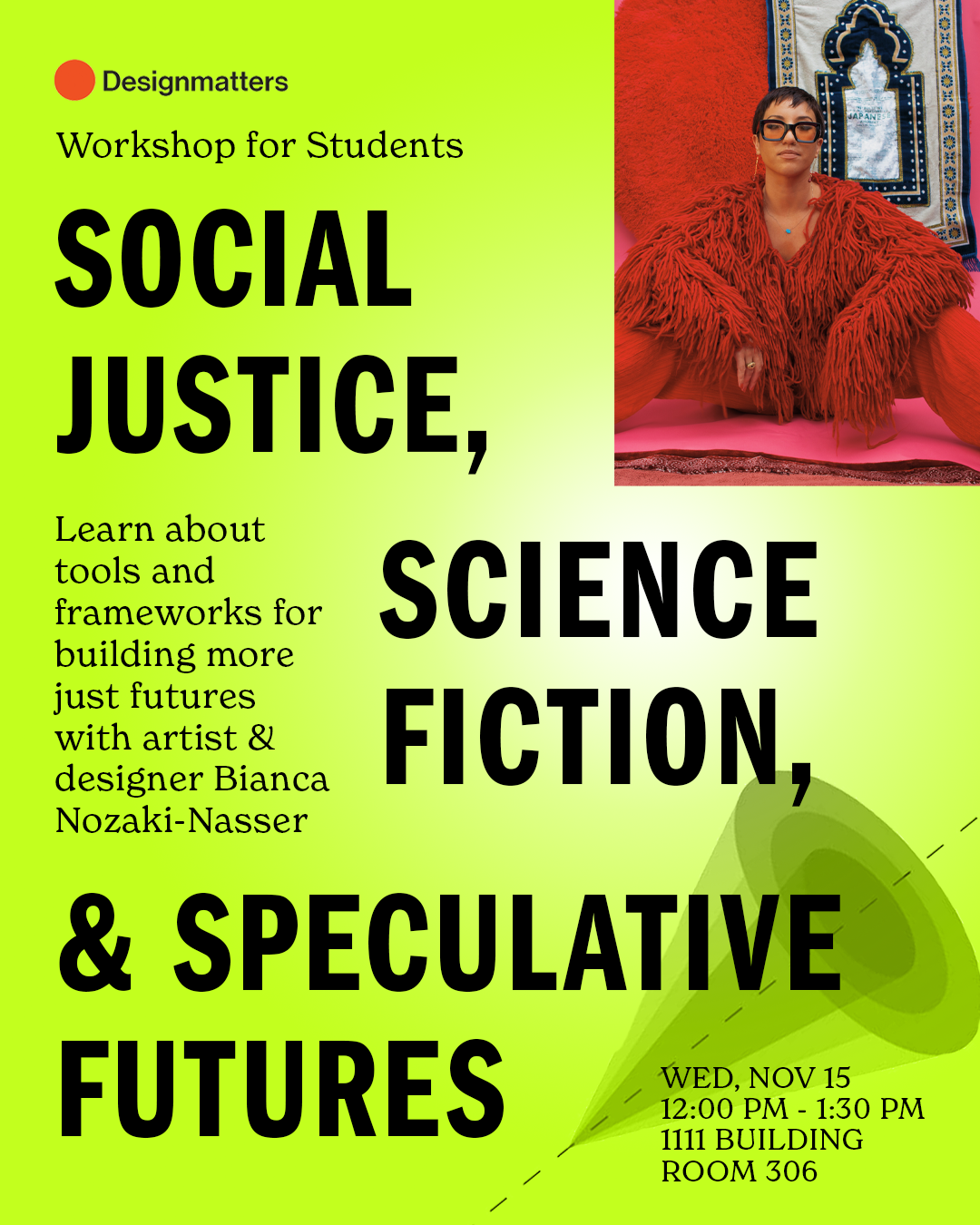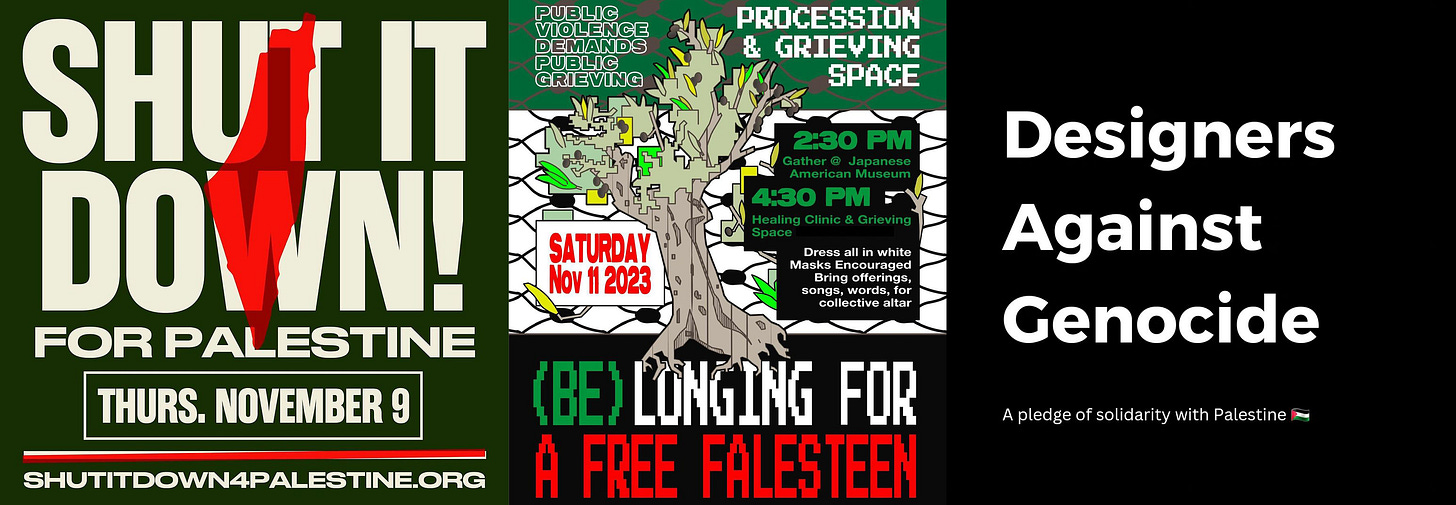Hi, I’m Bianca — a queer, Japanese-Lebanese-Syrian, Artist, Professor, & Creative Strategist living in Los Angeles. In case you are new here or if a reminder could help, this newsletter began as an exploration of figuring things out, one day at a time.
This past Sunday I moderated Level Ground’s “Our Future Worlds” panel at NAVEL alongside my good friend Leslie Foster. We spoke to this year’s Level Ground Artists in Residence about their arts practice and the syllabi they’ve created to accompany their residency work.

Care and aftercare have been coming up a lot over the past few months. One of the things I love about Level Ground is their commitment to evolve and adapt to the needs of their community. Their community agreements were actually what encouraged me to become a resident with them in 2021. Especially, “We will not sacrifice our rest or well-being for the sake of productivity or deadlines.”
Before we began Sunday’s panel, I found myself in conversation with some other artists about the importance of aftercare in all areas of our lives. The need to figure out aftercare practices feels especially urgent now, as people figure out where and how they can most sustainably plug into movement work.
I first learned about aftercare through a conversation about BDSM. I later learned that aftercare is discussed in the context of nursing homes and “post-incarceration.” I am curious about the language of aftercare as something distinct from self-care because aftercare foregrounds an acknowledgment that something happened. It also implies a collective responsibility because it is not something I go and scurry off to do independently, but it is something done with a partner or institution, or community. I find the concepts of self-care deeply individualistic and expensive (!!!). -
What does it look like to integrate models of aftercare into our lives?
Honestly, I’m not sure and I don’t have any answers or great resources on it right now.
Like Kameelah, BDSM is where I was introduced to the concept of aftercare. I’m figuring out how to expand and integrate aftercare into my life, work, and relationships as I go.
A friend recently mirrored back to me that my baseline is a place of action. And they are right. My trauma history has made me comfortable constantly operating from a place of doing amidst a crisis. For many years I have run towards things like teaching, trainings, toolkits, messaging, writing, exhibitions, etc. However, what I have also learned in the past few years is that these moments of political activation and mass mobilization offer not just opportunities to spring into action but also are spaces for us to truly strengthen and practice values that may guide us for the rest of our lives.
If you haven’t realized this already. When I need comfort or guidance I turn to reading. This week I deeply resonated with writing from
- “Fear Can’t Survive a Radical Love Ethic: Our mission, vision, and values keep us possible.” Ayana shares “I want to become skilled at holding my gaze, my rage, and my love over a lifetime.” Throughout their post they engage with bell hook’s Love Ethic:What might we do now to make sure we’re not asking ourselves “what should I do?” in the wake of every collective catastrophe? This political moment genuinely feels different, like a true portal is opening up on a global level, but so did 2020. I don’t know about you, but 2020 changed my life, it was the catalyst that set me running toward a radical love ethic. I have no doubt this genocide is doing the same, I feel more committed to my politics, my values and the promise of community than I ever have. I also have no doubt another global catastrophe will renew these commitments in another 3 years. I want to be clear, nihilism, despair, and apathy aren’t options inside my love ethic — this isn’t about pessimism it’s about preparation. -
Thanks for being here and letting me be a little scattered and unfinished in my thoughts this week.
with care,
Bianca
For my Art Center Community
Next week I’ll be sharing some work and hosting a mini workshop for students. Former students and alumni friends, please share with your folks. Students will discuss language, frameworks, and examples that highlight the role that artists and designers play in upholding or challenging systems of power. This workshop introduces concepts that will be more deeply explored in my Spring 2024 Designmatters TDS course.
🍉 LOS ANGELES: 11/11 Procession + Grieving Space @ JANM
🍉 Designers Against Genocide: a pledge of solidarity
🍉 Open Source Reading Library on Palestine + Israel








🍉🍉🍉🍉
🍉🍉🍉🍉 thank you bianca!